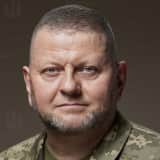Putting Survivors First: Ukraine's Evolving Approach to Justice for Conflict-Related Sexual Violence
Authors:
Anna Sosonska, Head of the Unit for Procedural Management of Pre-trial Investigation and Support of Public Prosecution in Criminal Proceedings on Crimes Related to Sexual Violence (Head of the Conflict-Related Crimes of Sexual Violence Unit of the Office of the Prosecutor General)
Сo-authored with Julia Tétrault-Provencher, Legal Advisor, Global Rights Compliance
Advertisement:
Rape, the electrocution of genitals, and the forced witnessing of sexual violence inflicted on family members — these, tragically, are just a fraction of the atrocities that Russian occupying forces have committed and continue to commit against Ukrainians.
When we work with these cases, the most powerful emotion — following the initial wave of compassion — is a profound yearning for justice. This is our mission and our purpose: to hold the perpetrators accountable. This is our mission and our purpose: to tell the world the truth about what is happening. And this is our mission and our purpose: to do so in a way that brings as little additional pain as possible to those we do it for — the survivors of these crimes — as they recall and speak about their experiences.
A crucial step on this path is the implementation of an effective framework for investigating this category of crimes. This means adopting comprehensive Standard Operating Procedures (SOPs) for the investigation and prosecution of conflict-related sexual violence (CRSV) in Ukraine — procedures that are genuinely survivor-centred, grounded in best international practice, and shaped by trauma-informed approaches to working with survivors.
Since the beginning of Russia’s full-scale invasion of Ukraine, 363 cases of conflict-related sexual violence have been officially registered. But this figure represents only a fraction of the true scale of the problem. The actual number of such crimes is likely to be many times higher.
Unfortunately, many of the perpetrators of these atrocities, as well as their commanding officers who failed to act to prevent and condemn rapes and other forms of sexual violence, remain unidentified and unpunished. This is largely due to the lack of access to Ukrainian law enforcement agencies for survivors in occupied territories and places of detention, as well as the fact that many survivors remain silent — held back by stigma, fear, shame, and a deep mistrust of the justice system.
We must do everything in our power to ensure that survivors are able to speak out, and that law enforcement authorities are able to investigate these crimes properly and effectively.
Justice for Russian war crimes demands both action and voice
Russia has been committing CRSV against Ukrainians since 2014. With Russia invading Crimea and parts of eastern Ukraine, survivors reported beatings and electrocution of the genitals, forced nudity, rape, and threats of rape against them and their relatives. It was the first time that law enforcement had to work on such cases. Some were not prepared.
Tetiana [name is changed], for instance, remembered how she was welcomed by four male officers the day of her interview and how uncomfortable she was to share her story with them. At the end, she did not have to, since, when she disclosed that she was a survivor of sexual violence, they sent her home, telling her they were not ready to take testimony on such matters.
We must admit that, initially, the response from law enforcement authorities was slow, uncoordinated, and at times so discouraging and far from being victim-centred that it led some survivors to withdraw from participating in the case.
Then, in the first months of the full-scale invasion, mounting evidence of widespread CRSV came to light, and CRSV survivors increasingly came forward. Numbers of registered cases skyrocketed. It became clear
that Ukrainian law enforcement authorities needed concrete, operational procedures that integrated best practices to support and uphold victim rights and needs, were practical, and tailored to the Ukrainian context and legal framework. The Office of the Prosecutor-General, the SBU and NPU immediately saw the need to provide a coordinated answer to the growing needs of survivors.
Since then, the OPG’s CRSV Division, with the support of international experts, Dr. Ingrid Elliot, UK’s Preventing Sexual Violence in Conflict Initiative expert and Global Rights Compliance, have been leading a multi-agency, multi-regional Task Force that has developed one of the world’s most innovative CRSV criminal justice initiatives: truly survivor-centred, trauma-informed Standard Operating Procedures (SOPs) for investigating and prosecuting CRSV in Ukraine.
Bringing together OPG and regional prosecutors, including from Kherson, Kharkiv and Donetsk regions, investigators from the NPU and the SBU, and the Victims and Witnesses Coordination Centre, the Task Force worked jointly to map and guide every survivors’ step in the criminal justice process from the pre-trial investigation to the Indictment.
A pivotal moment came in October 2024, when survivors of CRSV joined prosecutors and investigators for an open dialogue where we had an honest discussion about their experiences. Their voices directly shaped the SOPs, ensuring that the final procedures reflected both legal requirements and lived experiences.
What Will Change
The SOPs are not abstract guidelines. They are realistic, detailed, and Ukrainian-owned. They integrate international standards with Ukraine’s Criminal Procedural Code and other laws. Mainly, they implement Ukraine’s obligations under the Istanbul Convention (ratified in 2022); follow the guiding principles of the Murad Code; and align with critical EU Directives as part of Ukraine’s path toward EU accession.
Concretely, these SOPs are designed to ensure that all CRSV survivors are treated with dignity, respect and confidentiality. They guide investigators and prosecutors in upholding survivors’ rights and obligations by ensuring they are fully informed about the process, what their participation entails, and what support services are available. It provides guidance to ensure all investigative actions are conducted with the informed consent of survivors and following a risk assessment. To avoid survivors having to repeat their stories multiple times, the SOPs recommend assigning a single focal point, coordinating with other support services, and sharing relevant information with the survivor’s consent.
The SOPs support practitioners in strengthening case-building. They encourage law enforcement authorities to recognize and address their own potential biases or stigmas to ensure that CRSV is not overlooked or dismissed during interviews, including with male survivors, and that their language is not stigmatising and harming.
Aligning with the CPC, investigators and prosecutors are encouraged to document not only the crimes but also the mental, physical, and social impacts on survivors, their family and community
Not a Conclusion, but a Beginning
In recent days, the world has increasingly begun to address one of the most severe yet often silenced aspects of war: sexual violence committed during armed conflict. This growing attention is driven by the International Day for the Elimination of Sexual Violence in Conflict, marked annually on 19 June.
This day was established by the United Nations, and the date was chosen to commemorate the adoption of UN Security Council Resolution 1820 — a document that recognised sexual violence as a tactic of war and a grave threat to peacebuilding and post-conflict recovery.
Ukrainians, perhaps more than any other people today, understand the true cost of such declarations and resolutions. But this day offers a vital opportunity to remind the world that in order to realise our purpose—to bring Russian war criminals to justice—we must do everything possible to enable survivors to speak about the atrocities they endured.
From there, it is the duty of the entire law enforcement system, through coordinated, survivor-centred action, to ensure that we honour the immense courage of these individuals. Our goal must be to ensure that no survivor regrets placing their trust in the authorities, or regrets recounting the horrors they experienced. And so that all survivors — both women and men — who trusted us and shared their stories are treated with dignity, because it is their needs that must remain at the center of attention, especially amid a full-scale war that continues to challenge the justice system.
The Standard Operating Procedures (SOPs) now developed are not just about what must be done—they are about how to do it: effectively, lawfully, and with respect. Ukraine is not merely responding to conflict-related sexual violence—it is setting a precedent, a roadmap for other nations confronting this grave crime around the world.






